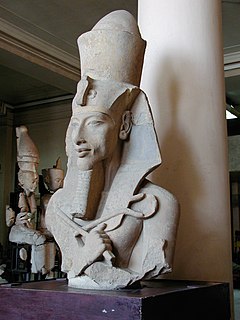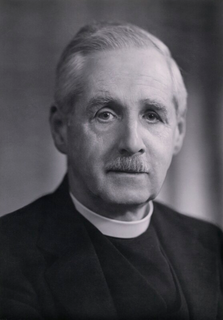A Quote by Marcus Aurelius
No longer let thy breathing only act in concert with the air which surrounds thee, but let thy intelligence also now be in harmony with the intelligence which embraces all things. For the intelligent power is no less diffused in all parts and pervades all things for him who is willing to draw it to him than the aërial power for him who is able to respire it.
Related Quotes
Deliberate long before thou consecrate a friend, and when thy impartial justice concludes him worthy of thy bosom, receive him joyfully, and entertain him wisely; impart thy secrets boldly, and mingle thy thoughts with his: he is thy very self; and use him so; if thou firmly think him faithful, thou makest him so.
And as He has given, "In all thy getting, my Son, get understanding." This is putting proper emphasis in the proper places, and do not become sidetracked by things that would pertain to material or spiritual alone, or things of the body or things of the heavenly force. For you grow to heaven, you don't go to heaven. It is within thine own conscience that ye grow there. For there first must come peace and harmony within thy purpose, thy ideal, thy hopes, thy desires. Thy wishes even must be in harmony with thy ideal if you would make the experience in the earth of value to thee.
God is alpha and omega in the great world: endeavor to make him so in the little world; make him thy evening epilogue and thy morning prologue; practice to make him thy last thought at night when thou sleepest, and thy first thought in the morning when thou awakest; so shall thy fancy be sanctified in the night, and thy understanding rectified in the day; so shall thy rest be peaceful, thy labors prosperous, thy life pious, and thy death glorious.
Without [these] lights and [this] little throne our Lord cannot come out of His tabernacle. We give them to Him, and we say to Him: 'Thou are on a beautiful throne. It is we that have erected it for Thee. It is we that have opened the door of Thy prison and rent the cloud that hid Thee, O Sun of Love. Dart Thy rays now on every heart'
But if anything in thy own dispositiongives thee pain, who hinders thee from correcting thy opinion? And even if thou art pained because thou art not doing some particular thing which seems to thee to be right, why dost thou not rather act than complain?- But some insuperable obstacle is in the way?- Do not be grieved then, for the cause of its not being done depends not on thee.- But it is not worth while to live if this cannot be done.- Take thy departure then from life contentedly, just as he dies who is in full activity, and well pleased too with the things which are obstacles.
The day becomes more solemn and serene When noon is past; there is a harmony In autumn, and a lustre in its sky, Which through the summer is not heard or seen, As if it could not be, as if it had not been! Thus let thy power, which like the truth Of nature on my passive youth Descended, to my onward life supply Its calm, to one who worships thee, And every form containing thee, Whom, SPIRIT fair, thy spells did bind To fear himself, and love all human kind.
Provide of thine own, to have all things at hand;
Less work and the workman, unoccupied, stand.
Make dry over-head both hovel and shack.
Wash sheep (for the better) where water doth run;
Let him go cleanly, and dry in the sun.
Thy houses and and barns would be looked upon;
And all things a[...]ed, ere harvest come on.
At midsummer, down with the brambles and brakes;
And after, abroad, with thy forks and thy rakes;
Set movers a mowing, where meadow is grown;
The longer now standing, the worse to be mown.
Beneficence is a duty. He who frequently practices it, and sees his benevolent intentions realized, at length comes really to love him to whom he has done good. When, therefore, it is said, "Thou shalt love thy neighbor as thyself," it is not meant, thou shalt love him first and do him good in consequence of that love, but, thou shalt do good to thy neighbor; and this thy beneficence will engender in thee that love to mankind which is the fulness and consummation of the inclination to do good.
These are thy glorious works Parent of Good, Almighty, thine this universal Frame, Thus wondrous fair; thy self how wondrous then! Unspeakable, who sitst above these Heavens To us invisible or dimly seen In these thy lowest works, yet these declare Thy goodness beyond thought, and Power Divine: Speak ye who best can tell, ye Sons of light, Angels, for ye behold him, and with songs And choral symphonies, Day without Night, Circle his Throne rejoicing, ye in Heav'n, On Earth join all ye Creatures to extoll Him first, him last, him midst, and without end.
For the power Thou hast given me to lay hold of things unseen: For the strong sense I have that this is not my home:For my restless heart which nothing finite can satisfy: I give Thee thanks, O God. For the invasion of my soul by Thy Holy Spirit: For all human love and goodness that speak to me of Thee: For the fullness of Thy glory outpoured in Jesus Christ: I give Thee thanks, O God.
Imagine a person who comes in here tonight and argues 'no air exists' but continues to breathe air while he argues. Now intellectually, atheists continue to breathe - they continue to use reason and draw scientific conclusions [which assumes an orderly universe], to make moral judgments [which assumes absolute values] - but the atheistic view of things would in theory make such 'breathing' impossible. They are breathing God's air all the time they are arguing against him.
Demean thyself more warily in thy study than in the street. If thy public actions have a hundred witnesses, thy private have a thousand. The multitude looks but upon thy actions; thy conscience looks into them: the multitude may chance to excuse thee, if not acquit thee; thy conscience will accuse thee, if not condemn thee.






































